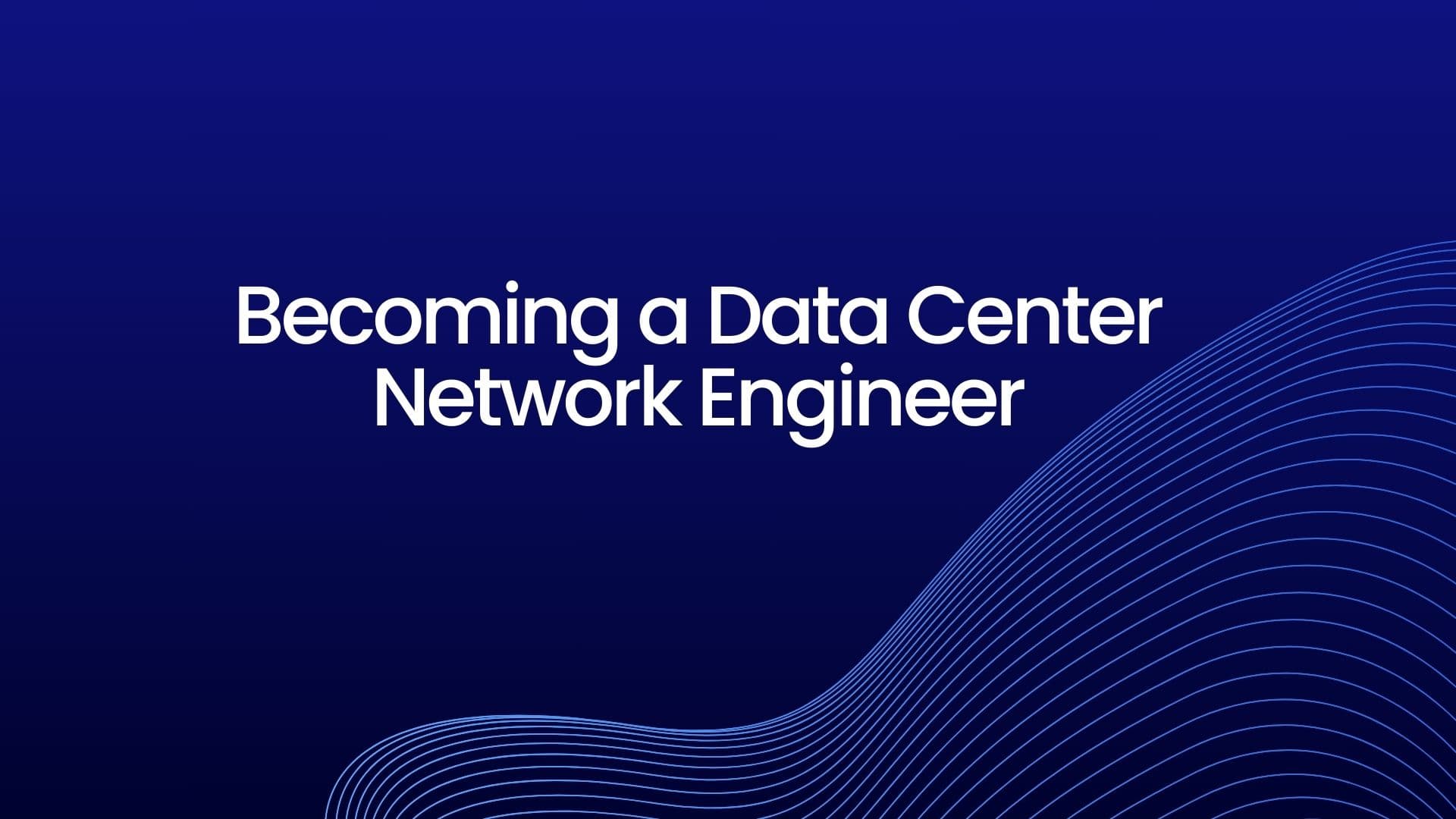TRUSTED BY THE SMARTEST TEAMS IN THE WORLD FOR CERTIFIED CANDIDATES
SPOTO Blogs
Useful learning materials to become certified IT personnel
-
- 408
- SPOTO
- 2025-06-11 10:54
-
- 1221
- SPOTO
- 2025-05-27 11:16
-
- 886
- SPOTO
- 2025-05-27 10:51
-
- 887
- SPOTO
- 2025-05-22 15:54
-
- 985
- SPOTO
- 2025-05-22 15:20
-
- 1466
- SPOTO
- 2025-05-22 14:53
-
- 1099
- SPOTO
- 2025-05-22 14:06
-
- 432
- SPOTO
- 2025-05-16 11:38
-
- 765
- SPOTO
- 2025-05-16 11:17
TRUSTED BY THE SMARTEST TEAMS IN THE WORLD FOR CERTIFIED CANDIDATES
SPOTO Blogs
Useful learning materials to become certified IT personnel
-
- 408
- SPOTO
- 2025-06-11 10:54
Table of Contents1. What is a Network Data Analyst?2. What does a Network Data Analyst do?3. How much does a Network Data Analyst Make?4. Job Outlook of Network Data Analyst5. Similar Occupations of Network Data Analyst6. What Are the Qualifications to Become a Network Data Analyst? A Network Data Analyst is a network professional who uses different tools and software to analyze the performance of an existing enterprise's network system and detect possible problems and vulnerabilities.This article will introduce you to what a Network Data Analyst is, the career information and prospects of a Network Data Analyst and the necessary conditions to become a Network Data Analyst. 1. What is a Network Data Analyst? A Network Data Analyst is a network professional who uses different tools and software to analyze the performance of an existing enterprise's network system and detect possible problems and vulnerabilities. 2. What does a Network Data Analyst do? The work of a network data analyst is mainly to obtain and analyze data information by using analysis platforms such as KNIME, programming languages ​​such as Python, and visualization tools such as Tableau. Then, according to actual needs, the primary and secondary data information are classified and stored, and the enterprise database is optimized and the problems in the enterprise system are detected. 3. How much does a Network Data Analyst Make? According to statistics from the Zippia website, the average annual salary of a web data analyst in the United States is $54,415. The annual salary of a web data analyst is usually between $39,000 and $74,000. The average hourly salary of a web data analyst is $26.16. The salary of a web data analyst is affected by location, education level and experience, so the above data is for reference only. 4. Job Outlook of Network Data Analyst As companies' demands for digital transformation increase, all walks of life are in great demand for network data analysts. The U.S. Bureau of Labor Statistics predicts that between 2023 and 2033, the number of operations research analyst positions will increase by 23%, the number of management analyst positions will increase by 11%, the number of mathematician and statistician positions will increase by 11%, and the number of information security analysts will increase by 33%. The growth rate of these occupations in the same positions as network data analysts is much higher than the average growth rate of 4%. 5. Similar Occupations of Network Data Analyst Network Analyst Network Engineer Network Architect Data Analyst Business Intelligence Analyst Data Scientist Data Engineer Systems Analyst Network Security Engineer System Administrator 6. What Are the Qualifications to Become a Network Data Analyst? (1) Obtain a Bachelor's Degree According to the U.S. Bureau of Labor Statistics, most entry-level data analyst positions require at least a bachelor's degree in a related field. Employers looking for network data analysts often require a bachelor's degree in computer science, engineering, telecommunications or information systems. These programs provide the skills and knowledge needed for the career. (2) Develop professional skills Having the skills required for a career is the key to successfully applying for and being competent at work. According to information provided by the Franklin website, network routing is the professional skill that employers value most when recruiting network data analysts, and 25% of all job vacancies require this skill. Secondly, job seekers with skills in network switches, telecommunications, local area networks, computer networks, and network hardware are also highly favored in the job search process. As for soft skills, troubleshooting (problem solving) is the most required skill in network data analyst job postings, followed by communication, customer service, operations, management, and problem solving. (3) Earn Industry Certifications Obtaining a certification that is highly recognized by the industry can prove your professional ability and ability to perform the position, and can also enhance your competitiveness in the workplace. Therefore, we recommend that you obtain the Cisco Certified DevNet Expert certification.Obtaining Cisco Certified DevNet Expert (CCIE DevNet Expert, Automation and Programming) certification demonstrates that you have advanced network automation, programming, DevOps, and network infrastructure integration capabilities. This type of certification is one of Cisco's highest levels and is particularly suitable for compound talents who combine network engineering and software development. -
- 1221
- SPOTO
- 2025-05-27 11:16
Table of Contents1. What is a Technical Expert?2. What does a Technical Expert do?3. Career Insights: Salary, Outlook & Related Roles4. What Are the Qualifications to Become a Technical Expert? Technical experts are highly skilled professionals who are responsible for solving technical problems in a business or organization and overseeing the normal operation of computer programs. They can provide technical support to customers or other team members via phone, video calls or face-to-face meetings.This article will introduce you to what a Technical Expert is, the career information and prospects of a Technical Expert and the necessary conditions to become a Technical Expert. 1. What is a Technical Expert? Technical experts are highly skilled professionals who are responsible for solving technical problems in a business or organization and overseeing the normal operation of computer programs. They can provide technical support to customers or other team members via phone, video calls or face-to-face meetings. 2. What does a Technical Expert do? As a technologist, tech-related tasks are an important part of your job description. First, technologists are responsible for diagnosing technical problems, troubleshooting computer systems, testing various components of the system to ensure it is functioning properly, and resolving problems or making minor repairs to computers and other technical equipment. Second, technologists also need to set up accounts and provide access to computer systems, install, update, and ensure compatibility of software and hardware. Third, technologists also need to collaborate with colleagues within and across departments, provide training on the use of new software and hardware, and make recommendations on how to improve the organization's computer systems. Finally, they need to respond to inquiries, calls, emails, and chat messages from customers and colleagues in a timely manner. 3. Career Insights: Salary, Outlook & Related Roles (1) Technical Expert Salary According to ZipRecruiter data on May 19, 2026, the average annual salary for a technologist in the United States is $156,348. That's about $75.17 per hour. That's $3,006 per week or $13,029 per month. Annual salaries can be as high as $206,000 and as low as $30,000, but most technologists currently make between $116,000 and $205,000, with the highest earners (90th percentile) making $205,000 across the United States. The average salary range for a technologist varies widely (as high as $89,000), which means there may be many opportunities for advancement and pay increases based on skill level, location, and years of experience. (2) Job Outlook of Technical Expert The career prospects of technical experts are bright.According to the U.S. Bureau of Labor Statistics, overall employment in computer and information technology occupations is projected to grow much faster than the average for all occupations between 2023 and 2033. These occupations are expected to have an average of about 356,700 job openings each year due to job growth and the need to replace workers who permanently leave the occupation. (3) Similar Occupations Software Engineer Business Analys Technical Manager Programming Analyst System Engineer System Analyst Solutions Architect Technical Architect 4. What Are the Qualifications to Become a Technical Expert? (1) Obtain a Bachelor's Degree The first step to becoming a technologist is to have the required education level for the position, which is a bachelor's degree in a related field. Technologists are often required to have a bachelor's degree in computer science, information technology, or engineering (various majors). (2) Develop professional skills Technical specialist positions require applicants to have extensive technical knowledge and computer-related skills. For example, Microsoft Windows and other operating systems, basic computer knowledge and maintenance, computer hardware knowledge, mobile device knowledge, programming language knowledge such as Java and Python, business operations, computer and network security, software maintenance and testing, and Microsoft Office, etc. (3) Earn Industry Certifications When applying for a technology specialist position, it is helpful to obtain certain certifications because they can help you develop key skills and knowledge required for the position and make your resume more noticeable to employers. Some employers prefer to hire candidates with experience in a related technical field, such as networking technology or IT. The CCIE Enterprise Wireless certification demonstrates your proficiency in planning, designing, implementing, operating, and optimizing complex enterprise wireless networks. Advance your career as a technology specialist by earning the Cisco Certified Internetwork Expert (CCIE) Enterprise Wireless certification. -
- 886
- SPOTO
- 2025-05-27 10:51
Table of Contents1. What is a Wireless Security Specialist?2. What does a Wireless Security Specialist do?3. Career Insights: Salary, Outlook & Related Roles4. What Are the Qualifications to Become a Wireless Security Specialist?(2) Develop professional skills A network security expert is someone who is responsible for various network security tasks in an enterprise or organization, installing, managing and troubleshooting existing or potential faults in the network security framework and formulating security policies.This article will introduce you to what a Wireless Security Specialist is, the career information and prospects of a Wireless Security Specialist and the necessary conditions to become a Wireless Security Specialist. 1. What is a Wireless Security Specialist? A network security expert is someone who is responsible for various network security tasks in an enterprise or organization, installing, managing and troubleshooting existing or potential faults in the network security framework and formulating security policies. 2. What does a Wireless Security Specialist do? The main responsibility of a cybersecurity expert is to lead the cybersecurity team of an enterprise or organization to troubleshoot network problems and develop cybersecurity plans. Cybersecurity professionals protect organizations by detecting network threats and implementing improvement measures. First of all, cybersecurity experts are responsible for monitoring, commanding, containing, and repairing IT threats. Secondly, they are also responsible for a variety of tasks, from installing, managing, and troubleshooting security solutions to writing security policies and providing training documents for colleagues. While other positions are responsible for specific parts of the entire system, cybersecurity experts must be able to look at the big picture to ensure that the system is protected from threats. 3. Career Insights: Salary, Outlook & Related Roles (1) Wireless Security Specialist Salary According to ZipRecruiter data on May 19, 2026, the average annual salary for wireless security personnel in the United States is $89,251. That's about $42.91 per hour. That's equivalent to $1,716 per week or $7,437 per month. Annual salaries can be as high as $141,500 and as low as $47,000, but most wireless security personnel currently make between $77,000 and $96,000 per year, with the highest earners (90th percentile) making as much as $117,500 per year across the United States. The average salary range for wireless security personnel varies widely (up to $19,000), which means there may be many opportunities for advancement and pay increases based on skill level, location, and years of experience. (2) Job Outlook of Wireless Security Specialist According to the U.S. Bureau of Labor Statistics, the number of information security analysts (and related positions) is expected to grow 33% between 2020 and 2030. This shows that there is a huge demand for professionals who can protect an organization's wireless networks from cyber threats. (3) Similar Occupations Network Security Analyst Cybersecurity Engineer Security Consultant Security Architect Penetration Tester Incident Response Specialist 4. What Are the Qualifications to Become a Wireless Security Specialist? (1) Obtain a Bachelor's Degree This position often requires a Bachelor of Science in cybersecurity, such as computer science, information technology, etc. (2) Develop professional skills Network security experts need to learn the various professional skills needed to maintain network security. They need to understand the basics of network security, such as encryption, authentication, authorization, and access control. Secondly, they need to understand the protocols, standards, and limitations of wireless technologies such as Wi-Fi, Bluetooth, infrared, and NFC, as well as security strategies and best practices for protecting wireless networks and mobile devices. At the same time, network security experts also need to be familiar with common threats and vulnerabilities, including hacker attacks, eavesdropping, and man-in-the-middle attacks. They also need to be able to configure wireless access points, routers, and other network devices, identify and troubleshoot common wireless network problems, and have practical experience in implementing encryption, access control, and firewall rules so that they can plan and execute incident emergency response procedures. (3) Earn Industry Certifications When applying for a cybersecurity specialist position, it is helpful to obtain certain certifications because they can help you develop the key skills and knowledge required for the position and make your resume more noticeable to employers. Some employers prefer to hire candidates with experience in sales or related technical fields, such as the cyber process or IT field.CCIE Enterprise Wireless certification validates your mastery of planning, designing, implementing, operating, and optimizing complex enterprise wireless networks. Earn the Cisco Certified Internetwork Expert (CCIE) Enterprise Wireless certification to advance your career as a network security expert. -
- 887
- SPOTO
- 2025-05-22 15:54
Table of Contents1. What is a Data Center Network Engineer?2. What does a Data Center Network Engineer do?3. Career Insights: Salary, Outlook & Related Roles4. What Are the Qualifications to Become a Data Center Network Engineer? 1. What is a Data Center Network Engineer? Data center engineers are professionals responsible for the construction and safe operation of data centers and assist in the maintenance and supervision of corporate infrastructure. 2. What does a Data Center Network Engineer do? The work of Data Center Network Engineer mainly revolves around the storage, use and maintenance of data. First, Data Center Network Engineer needs to use the data and converged communication infrastructure of Cisco equipment to provide wide area network/local area network (WAN/LAN) network services, monitor the normal operation of data network infrastructure, and take into account customer satisfaction and regulatory compliance.Secondly, it is necessary to perform the design integration of complex cross-functional systems, lead the technical design review of various infrastructure projects, and serve as a senior technical resource. Recommend appropriate technical designs and solutions that meet business needs and corporate technology strategies and can provide the most efficient and cost-effective solutions.Finally, evaluate and implement the design of wide area network/local area network (WAN/LAN) architecture, oversee network traffic analysis and bandwidth, and modify network configuration based on cost-effectiveness recommendations. 3. Career Insights: Salary, Outlook & Related Roles (1) Data Center Network Engineer Salary According to data from the ZipRecruiter website on May 14, 2026, the average annual salary for a data center network engineer in the United States is $147,461. That's about $70.89 per hour. This is equivalent to $2,835 per week or $12,288 per month. The highest annual salary can be as high as $197,000 and the lowest is only $51,500, but most data center network engineers currently have an annual salary between $84,000 and $196,000, with the highest earners in the United States making up to $196,000. The average salary range for a data center network engineer varies greatly (up to $112,000), which means there may be many opportunities for advancement and pay increases depending on skill level, location, and years of experience. (2) Job Outlook of Data Center Network Engineer The rapid development of technologies such as the Internet of Things (IoT) and Artificial Intelligence (AI) is driving companies across all industries to invest heavily in modern digital infrastructure to support continued growth. As the backbone of today's digital economy, data centers are in particular need of high performance. (3) Similar Occupations Network Engineer Senior Network Engineer Data Center Engineer Network Architect DevNet / Network Automation Engineer Cloud Network Engineer Systems Engineer (with a Networking Focus) Security Network Engineer Platform Engineer / Site Reliability Engineer (SRE) SDN Engineer / Cisco ACI Engineer Infrastructure Engineer 4. What Are the Qualifications to Become a Data Center Network Engineer? (1) Obtain a Bachelor's Degree When recruiting Data Center Network Engineers, employers often require job seekers to have a bachelor's degree in computer science, information technology, electrical engineering, or a related field. Having relevant professional certifications and relevant work experience can enhance career prospects. (2) Develop professional skills First of all, Data Center Network Engineer needs to be able to use tools such as Wireshark, SolarWinds, Nagios, Cisco DNA Center, etc. to carry out daily work. Secondly, master Python, Ansible, etc., and have a deep understanding of all storage and networking products. Finally, you need to be familiar with Cisco, Juniper, Arista, Palo Alto Networks, VMware NSX, Cisco ACI, SDN (Software-Defined Networking), etc. (3) Earn Industry Certifications When applying for infrastructure engineer positions, it is helpful to obtain certain certifications as they can help you develop the key skills and knowledge required for the position and make your resume more noticeable to employers.Some employers prefer to hire candidates with experience in sales or a related technical field, such as engineering or IT strategy. CCIE Enterprise Infrastructure certification can prove your skills with complex enterprise infrastructure solutions from designing and deploying to operating and optimizing. Take your place as a Data Center Network Engineer by achieving the Cisco Certified Internetwork Expert (CCIE) Enterprise Infrastructure certification. -
- 985
- SPOTO
- 2025-05-22 15:20
Table of Contents1. What is a System Integrator ?2. What does a System Integrator do?3. Career Insights: Salary, Outlook & Related Roles4. What Are the Qualifications to Become a System Integrator? System integrators are technicians who integrate different computing systems into unified IT solutions. They are usually responsible for building, maintaining and monitoring the integration functions between different IT systems.This article will introduce you to what a System Integrator is, the career information and prospects of a System Integrator and the necessary conditions to become a System Integrator. 1. What is a System Integrator ? System integrators are technicians who integrate different computing systems into unified IT solutions. They are usually responsible for building, maintaining and monitoring the integration functions between different IT systems. 2. What does a System Integrator do? During the communication with the enterprise customers, the system integrator will analyze the business needs of the customers and clarify the corresponding IT system technical specifications. Based on these needs, a specific integration plan will be formulated to lay the foundation for the subsequent implementation process. The whole process may include designing or developing customized architecture or applications and integrating them with newly purchased or existing hardware equipment, software products (including packaged software and customized software) and network infrastructure. 3. Career Insights: Salary, Outlook & Related Roles (1) System Integrator Salary According to ZipRecruiter on May 14, 2026, the average annual salary for a System Integrator in the United States is $108,092. That works out to about $51.97 per hour. That's $2,078 per week or $9,007 per month. Salaries range from as high as $164,320 to as low as $42,437, but most System Integrator salaries currently range from $83,400 to $128,300, with the highest-earning annual salary being $151,983 in California. The average salary range for a System Integrator varies widely (as much as $44,900), which suggests there may be many opportunities for advancement and increased pay based on skill level, location, and years of experience. (2) Job Outlook of System Integrator The career prospects for system integration engineers show steady growth. According to a report by market research firm MarketsandMarkets, the global system integration market is expected to grow from $2.97 billion in 2024 to $4.03 billion in 2029, with a compound annual growth rate (CAGR) of 6.3%. (3) Similar Occupations Systems Engineer Solutions Architect Network Engineer / Network Architect IT Consultant / Technical Consultant Field Service Engineer / Implementation Engineer Enterprise Architect Cloud Solutions Engineer Automation Engineer DevOps Engineer Infrastructure Engineer 4. What Are the Qualifications to Become a System Integrator? Firstly,A bachelor's degree is a common and basic professional qualification requirement for system integrator positions. Job seekers are often required to have a bachelor's degree in computer science, software engineering, computer engineering, or a related field. Secondly,Becoming a system integrator often requires professional skills in the corresponding integration field, such as extensive IT knowledge, including understanding of computer hardware, software, and networks, as well as skilled troubleshooting and problem-solving skills. Last but not least,Experience in the System Integration industry is crucial in your job search, so you should receive on-the-job training. Many employers want to hire people who are certified in a specific company. Cisco is one of the most common systems, so getting a Cisco certification will give you the best chance of success in the job market.CCIE Enterprise Infrastructure certification can prove your skills with complex enterprise infrastructure solutions from designing and deploying to operating and optimizing. Take your place as a System Integrator by achieving the Cisco Certified Internetwork Expert (CCIE) Enterprise Infrastructure certification. -
- 1466
- SPOTO
- 2025-05-22 14:53
Table of Contents1. What is a Unified Communications Engineer?2. What does a Unified Communications Engineer do?3. Career Insights: Salary, Outlook & Related Roles4. What Are the Qualifications to Become a Unified Communications Engineer? 1. What is a Unified Communications Engineer? Unified communications engineers are professional technicians who establish, supervise and maintain communications systems and infrastructure for enterprises or organizations. They are responsible for the management and support of voice, video and data communications systems. 2. What does a Unified Communications Engineer do? Unified Communications Engineers are responsible for managing and supporting voice, video, and data communications systems, and for the deployment and configuration of unified communications systems and tools. First, they monitor the operating status of communications systems, perform maintenance, and resolve issues that arise in voice, video, and messaging systems. Second, they collaborate with other IT teams to integrate communications systems into existing infrastructure, while providing technical support and guidance to users. Finally, they keep an eye on new technology developments in the unified communications field, and keep detailed records of system configurations, operating procedures, and changes. 3. Career Insights: Salary, Outlook & Related Roles (1) Unified Communications Engineer Salary According to data from Glassdoor, the expected total salary for communications engineers is $120,111 per year, with an average annual salary of $100,802. The expected additional salary is $19,309 per year. Additional salary may include cash bonuses, commissions, tips, and profit sharing. (2) Job Outlook of Unified Communications Engineer With the popularity of remote working, enterprises' demand for unified communications solutions has increased significantly, which in turn has driven the demand for the recruitment of Unified Communications Engineers. According to research by MarketsandMarkets, the UCaaS market is expected to reach US$24.8 billion in 2024, a 50% increase from 2019. (3) Similar Occupations Voice Engineer (VoIP Engineer) Collaboration Engineer Telecommunications Engineer Video Conferencing Engineer / AV Engineer Microsoft Teams / Skype for Business Engineer Cisco Collaboration Specialist / Engineer Contact Center Engineer (UCCE/UCCX) Network Engineer (with VoIP focus) IT Support Engineer (with UC specialization) Solutions Architect (UC / Collaboration) 4. What Are the Qualifications to Become a Unified Communications Engineer? (1) Obtain a Bachelor's Degree The recruitment of Unified Communications Engineer often requires a bachelor's degree in Computer Science, Electrical Engineering, Information Technology or a related technical field. In addition, relevant professional skills and internship experience are also very important, so job seekers are required to learn relevant practical experience during school. (2) Develop professional skills Unified Communications Engineers need to possess a variety of technical and analytical skills required to design, deploy, and maintain integrated communications systems. Key capabilities include proficiency in VoIP technology, Cisco Unified Communications platforms (such as CUCM, Unity Connection, and IM & Presence), and video conferencing solutions. Secondly, they also need to be proficient in the management of enterprise network infrastructure, monitoring complex systems for unified communications, and dedicated troubleshooting. Finally, they also need to master some other technical capabilities, which usually include working knowledge of Linux systems, TCP/IP protocols, switches and routers, and radio frequency communications. The combination of communication system expertise and IT infrastructure management makes unified communications engineers essential to ensuring a reliable, scalable, and secure enterprise collaboration environment. (3) Earn Industry Certifications Experience in the Unified Communications industry is crucial in your job search, so you should receive on-the-job training. Many employers want to hire people who are certified in a specific company. Cisco is one of the most common systems, so getting a Cisco certification will give you the best chance of success in the job market.CCIE Collaboration certification demonstrates your advanced skills in planning, designing, implementing, operating, and optimizing complex enterprise collaboration solutions. Earn the Cisco Certified Internetwork Expert (CCIE) Collaboration certification to show employers your expertise in Unified Communications. -
- 1099
- SPOTO
- 2025-05-22 14:06
Table of Contents1. What is a Voice Network Engineer?2. What does a Voice Network Engineer do?3. Career Insights: Salary, Outlook & Related Roles4. What Are the Qualifications to Become a Voice Network Engineer?5. Summarize Voice Network Engineer is a professional technician who is responsible for the management, monitoring and maintenance of conventional telecommunication platforms, telecommunication systems and telecommunication infrastructure of enterprises and organizations.This article will introduce you to what a Voice Network Engineer is, the career information and prospects of a Voice Network Engineer and the necessary conditions to become a Voice Network Engineer. 1. What is a Voice Network Engineer? Voice Network Engineer is a professional technician who is responsible for the management, monitoring and maintenance of conventional telecommunication platforms, telecommunication systems and telecommunication infrastructure of enterprises and organizations. 2. What does a Voice Network Engineer do? Voice network engineers are responsible for designing and implementing a business or organization's computer and information networks, such as local area networks (LANs), wide area networks (WANs), intranets, extranets, and other data communications networks. Second, they are responsible for performing network modeling, analysis, and planning, including analyzing capacity requirements for network infrastructure. Additionally, they may design network and computer security measures, so they need to research and recommend network and data communications hardware and software. 3. Career Insights: Salary, Outlook & Related Roles (1) Voice Network Engineer Salary According to ZipRecruiter, the average hourly wage for a Network Voice Engineer in the United States is $47.89 as of May 14, 2026. Hourly wages can be as high as $67.07 and as low as $10.10, but most Network Voice Engineer salaries currently range from $40.62 to $58.17 across the United States. The average salary range for a Network Voice Engineer varies greatly, which means there may be many opportunities for advancement and increased pay based on skill level, location, and years of experience. (2) Job Outlook of Voice Network Engineer The job outlook for network voice engineers is positive, with the U.S. Bureau of Labor Statistics (BLS) stating that network engineering job opportunities will grow by about 3% through 2031. While this growth rate is slightly slower than the average for other occupations, the BLS states that “despite limited job growth, an average of about 23,900 new network and computer systems administrator positions are expected to be created annually over the next decade.” And network engineering jobs are expected to grow by 3% through 2031. (3) Similar Occupations Unified Communications (UC) Engineer VoIP Engineer Cisco Voice Engineer (CUCM Specialist) Contact Center Engineer (UCCX/UCCE) Voice Architect / UC Solutions Architect SIP Engineer / SBC Engineer IT Support / Telecom Support Specialist Telecommunications Engineer Collaboration Engineer Network Engineer (with VoIP emphasis) 4. What Are the Qualifications to Become a Voice Network Engineer? (1) Obtain a Bachelor's Degree The recruitment of Voice Network Engineers often requires a bachelor's degree in computer science or a related major or a higher degree in a related major. In addition, relevant professional skills and internship experience are also very important, so job seekers are required to learn relevant practical experience during school. (2) Develop professional skills The most common important skills required for the Voice Network Engineer position are customer service, switches, deployment, scripting, CCNA, firewalls, and LAN. In addition, employers list security clearance as a desirable experience in VOIP engineer job descriptions, even though security clearance appears 6.87 times less often in resumes than in general, indicating that if you have experience in this area, it is worth considering adding this keyword. In addition, job seekers' skills in areas such as customer service, switches, deployment, scripting, firewalls, LANs, PBXs, project management, Linux, VPNs, etc. are also extremely important and must be fully reflected in the resume. (3) Earn Industry Certifications Experience in the IT industry is crucial in your job search, so you should receive on-the-job training. Many employers want to hire people who are certified in a specific company. Cisco is one of the most common systems, so getting a Cisco certification will give you the best chance of success in the job market.CCIE Collaboration certification demonstrates your advanced skills in planning, designing, implementing, operating, and optimizing complex enterprise collaboration solutions. Earn the Cisco Certified Internetwork Expert (CCIE) Collaboration certification to show employers your expertise in Voice Networks. 5. Summarize Voice Network Engineer is a professional technician who is responsible for the management, monitoring and maintenance of conventional telecommunication platforms, telecommunication systems and telecommunication infrastructure of enterprises and organizations.The recruitment of Voice Network Engineers often requires a bachelor's degree in computer science or a related major or a higher degree in a related major.CCIE Collaboration certification demonstrates your advanced skills in planning, designing, implementing, operating, and optimizing complex enterprise collaboration solutions. Earn the Cisco Certified Internetwork Expert (CCIE) Collaboration certification to show employers your expertise in Voice Networks. -
- 432
- SPOTO
- 2025-05-16 11:38
Table of Contents1. What is a Network Automation Engineer?2. What does a Network Automation Engineer do?3. Career Insights: Salary, Outlook & Related Roles4. What Are the Qualifications to Become a Network Automation Engineer? 1. What is a Network Automation Engineer? Network automation engineers are IT personnel responsible for designing, developing and implementing network operations automation for an enterprise. These engineers use programming, scripting and automation tools to simplify and manage network infrastructure. 2. What does a Network Automation Engineer do? It will be your responsibility as a network automation engineer to implement automation solutions to improve the effectiveness and consistency of network management. Scripting and creating tools to perform configuration, monitoring, and diagnostic tasks are all part of this, as is having a thorough understanding of the current network architecture and determining which areas need automation the most. At the device level, you must be proficient in using programming languages ​​and automation tools to automate tasks such as firmware upgrades, access configurations, and other changes to network devices such as firewalls, switches, and routers. Implement a network monitoring system to automatically collect network operation data. 3. Career Insights: Salary, Outlook & Related Roles (1) Network Automation Engineer Salary According to Glassdoor, the expected total salary for a network automation engineer is $126,358 per year, with an average salary of $107,905 per year. The expected additional salary is $18,452 per year. Additional salary may include cash bonuses, commissions, tips, and profit sharing. (2) Job Outlook of Network Automation Engineer With the widespread application of automation technology in enterprises, network engineering has gradually become one of the fastest-growing areas of automation. By 2024, the global network automation market has reached US$5.41 billion, and is expected to grow to US$43.4 billion by 2034, with an average annual growth rate of 23.15%. Driven by this trend, the demand for network automation engineers continues to grow, and the career development prospects of this position are very promising. (3) Similar Occupations DevOps Engineer Site Reliability Engineer (SRE) Network Engineer (with Automation Focus) Cloud Network Engineer Infrastructure Automation Engineer Network Architect Security Automation Engineer Systems Engineer (with Network Automation focus) 4. What Are the Qualifications to Become a Network Automation Engineer? (1) Obtain a Bachelor's Degree To become an automation engineer, you first need to have a university degree that is recognized by the company. Typically, a bachelor's degree in computer science, computer engineering, electrical engineering, or a related major is the basis for entry into this profession. For higher-level automation engineering positions, such as senior positions, employers may prefer candidates with a master's degree in computer science, telecommunications, and other related fields. (2) Develop professional skills To become a qualified network automation engineer, you first need to have a solid foundation of network knowledge. This includes an in-depth understanding of IP addressing, routing mechanisms, and familiarity with different types of networks such as local area networks (LANs), wide area networks (WANs), and software-defined networks (SDNs), as well as mastering the core concepts related to network security. For practitioners who are new to this field, taking basic courses such as CCNA will help to establish a systematic knowledge framework. In addition, programming ability is also one of the key skills, especially proficiency in using languages ​​such as Python and PowerShell to write automation scripts and develop network management tools. If you have relevant experience in object-oriented programming, data structures, and algorithms, you will further enhance your ability to solve complex problems. The mastery of network automation tools, such as Ansible, Puppet, Chef, and SaltStack, cannot be ignored. These tools can help you realize the automated configuration, deployment, and management of network devices and improve overall work efficiency. At the same time, you should also be familiar with network monitoring platforms such as Nagios, Zabbix, or SolarWinds, so that you can effectively collect and analyze network operation data, and build an automated response mechanism based on real-time events to ensure the stability and efficient operation of the network system. (3) Earn Industry Certifications When applying for infrastructure engineer positions, it is helpful to obtain certain certifications as they can help you develop the key skills and knowledge required for the position and make your resume more noticeable to employers.Some employers prefer to hire candidates with experience in sales or a related technical field, such as engineering or IT strategy.CCIE Enterprise Infrastructure certification demonstrates your proficiency in complex enterprise infrastructure solutions, from design and deployment to operations and optimization. Earn Cisco Certified Internetwork Expert (CCIE) Enterprise Infrastructure certification and become a Network Automation Engineer. -
- 765
- SPOTO
- 2025-05-16 11:17
Table of Contents1. What is a Cloud Engineer?2. What does a Cloud Engineer do?3. Career Insights: Salary, Outlook & Related Roles4. What Are the Qualifications to Become a Cloud Engineer?5. Summarize 1. What is a Cloud Engineer? Cloud Engineer is responsible for connecting the existing enterprise LAN with the network architecture of emerging private and public cloud implementations. As enterprises increasingly migrate their businesses to the cloud, cloud network engineers are responsible for the implementation, configuration, maintenance and support of cloud networks and various other cloud services. 2. What does a Cloud Engineer do? Cloud Engineers need to have a comprehensive understanding of network technology, including key concepts such as local area network (LAN), wide area network (WAN), virtual private cloud (VPC), intranet and extranet, and master core skills such as routing, switching, firewall, load balancing, and network monitoring and management. In addition, they need to be able to analyze, build, test and optimize enterprise network architectures on mainstream cloud platforms (such as AWS, Google Cloud, and Azure). In actual work, this role usually collaborates with internal cloud users (such as department heads or application development teams) to promote the deployment, optimization, and continuous operation and maintenance of cloud networks. This usually involves standardizing and repeating network design through automated tools to improve efficiency and consistency. In addition, they are also responsible for upgrading, maintaining, and patching the network infrastructure that private or hybrid cloud environments rely on, ensuring that the architecture design meets corporate standards in terms of network security and compliance. In a multi-cloud or hybrid cloud environment, Cloud Network Engineers may also need to perform network integration tasks, such as interconnecting private clouds with AWS. At the same time, this position also bears the responsibility of monitoring cloud network performance, resource utilization, and availability, and formulating network optimization and expansion plans when necessary. Work with other technical teams (such as architects, operations engineers, and IT support) to develop audit standards, operating procedures, training materials, and technical documentation to ensure the stable operation of the cloud network. Finally, Cloud Engineers also need to deal with network troubleshooting and repair, involving disaster recovery scenarios, and may need to participate in shift duty to ensure that the cloud network environment is available 24/7. 3. Career Insights: Salary, Outlook & Related Roles (1) Cloud Engineer Salary According to ZipRecruiter on May 8, 2026, the average annual salary for a cloud engineer in the United States is $109,040. That's about $52.42 per hour. That's equivalent to $2,096 per week or $9,086 per month. Annual salaries can be as high as $158,000 and as low as $31,000, but most cloud network engineers currently make between $89,000 and $133,500, with the highest earners making as much as $143,000 per year across the United States. The average salary range for a cloud network engineer varies greatly, which means there may be many opportunities for advancement and pay increases based on skill level, location, and years of experience. (2) Job Outlook of Cloud Engineer According to relevant data, it is expected to grow significantly in the next few years. The increasing adoption of cloud computing by enterprises around the world has driven the demand for skilled professionals who can design, implement and manage complex cloud networks. The employment outlook for cloud network engineers is very strong. This career path offers attractive salaries, various specialization opportunities, and the opportunity to continue learning as technology develops. (3) Similar Occupations Network Engineer (Traditional / Enterprise) Cloud Infrastructure Engineer DevOps Engineer Cloud Security Engineer Site Reliability Engineer (SRE) Network Automation Engineer Solutions Architect (Cloud or Network Focus) 4. What Are the Qualifications to Become a Cloud Engineer? (1) Obtain a Bachelor's Degree This career requires job seekers to have a bachelor's degree in computer science, information technology, or a related field. (2) Develop professional skills After analyzing 120,916 job openings related to cloud engineers, it was found that network engineering is the most popular professional ability among employers, with about 34% of positions requiring this skill. In addition, network routing, automation technology, computer science foundation, firewall configuration, and switch management are also popular. In terms of general skills, troubleshooting ability is the skill that appears most frequently in recruitment information, followed by communication and coordination, system operation and maintenance, project management, problem solving, and planning ability. (3) Earn Industry Certifications When applying for infrastructure engineer positions, it is helpful to obtain certain certifications as they can help you develop the key skills and knowledge required for the position and make your resume more noticeable to employers.Some employers prefer to hire candidates with experience in sales or a related technical field, such as engineering or IT strategy.CCIE Enterprise Infrastructure certification demonstrates your proficiency in complex enterprise infrastructure solutions, from design and deployment to operations and optimization. Earn Cisco Certified Internetwork Expert (CCIE) Enterprise Infrastructure certification and become a Cloud Engineer. 5. Summarize Cloud engineers play a key role in building and maintaining cloud-based network systems. Their responsibilities span design, security, automation, and performance monitoring. With high demand, competitive salaries, and an evolving technology landscape, this career offers long-term opportunities for professionals with the right education, skills, and certifications.














